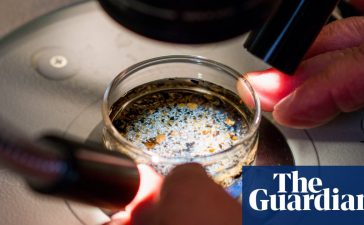
Deep sea fishing aboard The Gambler near Point Pleasant Beach
Anglers head out to sea aboard The Gambler fishing vessel for a half day adventure. They are after summer flounder, or fluke, and black sea bass.
Doug Hood, Asbury Park Press
Summertime is fast approaching, and with the weather getting warmer, so are the waters around Massachusetts. With warmer waters comes the return of the black sea bass, and starting Saturday, Bay State anglers will get their chance to hook (or spear) the highly sought-after fish.
The 2024 Massachusetts black sea bass season kicks off this weekend and runs through Sept. 3, with this year’s season starting two days earlier and ending two days before Labor Day rather than two days after. Per the Massachusetts Division of Fisheries and Wildlife (MassWildlife), anglers are allowed to reel in up to four black sea bass that measure a minimum of 16½ inches in length from the tip of the snout/jaw (mouth closed) to the farthest extremity of the tail, not including the filament.
More closely related to the grouper than the striped bass, black sea bass are, as their name suggests, black or a darker brown in color with slightly lighter stomachs. Their fins are darker with dusky spots while their dorsal fins are usually marked with white spots and bands.
As for the taste, black sea bass are noted for their mild, delicate flavor that pairs well with many different recipes and cuisines. Lean and loaded with low-fat protein, the flesh is often tender but moderately firm as to not fall apart. Due to their smaller size as compared to other whitefish, black sea bass are often prepared whole but can also be fileted as well.
If the ocean is calling you, here’s a few things to know about black sea bass fishing in Massachusetts before casting a line.
Do I need a fishing permit?
If you’re under the age of 16, have a disability and/or are fishing as part of a permitted for-hire charter boat excursion, no permit is required. For all other anglers, a recreational saltwater fishing permit is required.
Saltwater fishing permits for anglers aged 17-59 cost $10, while they are free to anglers over the age of 60. Permits can be purchased online, which comes with an additional $1.68 processing fee regardless of age. Permits can also be acquired in person at the Division of Marine Fisheries offices in Gloucester (30 Emerson Ave.) and New Bedford (836 S. Rodney French Blvd.), at approved vendors or by mailing completed applications and checks payable to the Division of Marine Fisheries to either office. Unlike hunting and freshwater fishing licenses, the purchase a $5 Wildlands Stamp is not required and there is no price difference for residents and non-residents.
Massachusetts recreational saltwater fishing permit holders are also allowed to fish in Rhode Island, New Hampshire, Connecticut and Maine, while Rhode Island, New Hampshire and Connecticut permit holders are allowed to fish in the Bay State without having to purchase a Mass. permit. All rules and regulations of each state apply in that respective state, and anglers should check those requirements before heading out of state.
More: 14 of the best freshwater fishing spots in the Brockton, Taunton area
Where can I find black sea bass?
Black sea bass are bottom dwellers that can usually be found near reefs, shipwrecks or other underwater formations, seldom reaching depths below 150 feet during the spring and summer before heading south and returning to the open ocean in the fall. MassWildlife notes that they are most abundant in and around Buzzard’s Bay, Nantucket Sound and the Vineyard Sound.
Warming ocean temperatures over the past decade has seen an increase in the number of black sea bass around Massachusetts, with the black sea bass range moving further north to the Gulf of Maine as well.
How do I catch black sea bass?
Bait fishing, particularly using either crab, fish or squid, with smaller hooks or smaller sinkers is the most recommended option for success. While some may jump at lures or jigs, it isn’t the best bet to hook a black sea bass. Larger males tend to be found on the deeper end of the range, around 120 feet, and while black sea bass can weigh over eight pounds, most tend to be under four pounds.
Spearfishing of black sea bass is also allowed in Massachusetts and doesn’t required a special permit. Some anglers prefer this method for the challenge, with the elusiveness of the species making it particularly difficult to spear.
When removing the fish from a hook or spear, anglers should be careful of the species’ sharp spines on its dorsal fins and opercula, also known as its gill covers.
For those fishing on a private or for-hire vessel, black sea bass may be fileted at sea but not skinned. An angler is allowed to carry no more than two filets per allowed fish off the vessel.
Cameron Merritt is the Massachusetts Outdoors Columnist for the USA TODAY Network. Primarily a sports reporter and photographer for the Taunton Daily Gazette, he can be reached at cmerritt@tauntongazette.com.






